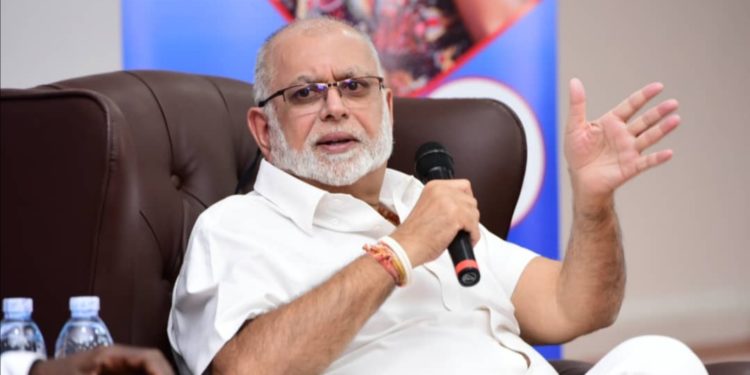The Court of Appeal from the High Court of Justice Business and Property Courts in England has issued a judgement quashing earlier decision by the lower court exonerating dfcu bank and its shareholders from fraudulently taking over Crane Bank.
The Court of Appeal contends with businessman Sudhir Ruparelia and six other applicants that dfcu bank and its shareholders bought Crane Bank Limited (CBL) through a well-crafted corruption scheme involving the officials of Bank of Uganda.
The other appellants are; Jyotsna Ruparelia (Sudhir’s wife), Meera Ruparelia, Rajiv Ruparelia, Tom Mugenga and Sheena Ruparelia. The sixth appellant is Crane Bank itself.
In a ruling delivered on Wednesday 26th July 2023, the Court of Appeal from the High Court of Justice Business and Property Courts in England reasoned that there are serious issues that can be tried in the UK as per the transaction where the Bank of Uganda, through corruption, illegally sold Crane Bank Limited (CBL) assets to DFCU in January 2017.
Lord Justice Phillips said: “I would allow the appeal on the ground that there are serious issues to be tried as to whether part or all appellants’ claims fall within the Commercial Activity Exception and/or the Public Policy Exception.”
The appellants aver that the sale of CBL was commercial rather than sovereign in character, therefore falling outside the foreign act of state rule.
The appellants assert that from 2016 senior Ugandan government officials and officials of the Bank of Uganda engaged in a corrupt scheme to take control of CBL, making improper use of statutory and regulatory powers to do so, and then to sell assets for the benefit of the parties to the scheme.
The Court also recommends that Bank of Uganda officials at the center of the transaction should be prosecuted of corruption.
“The first appellant, Crane Bank Limited (“CBL”), was formerly a major commercial bank in Uganda. The second to seventh appellants are shareholders in CBL. In these proceedings the appellants assert that from about Spring 2016 senior Ugandan government officials and officials of the Bank of Uganda (“the BoU”) engaged in a corrupt scheme to take control of CBL, making improper use of statutory and regulatory powers to do so, and then to sell its assets for the benefit of the parties to the scheme. The appellants allege that the first respondent (“DFCU Bank”), another Ugandan commercial bank, joined the corrupt scheme as purchaser of CBL’s assets from the BoU (acting as receiver of CBL), that purchase being at a gross undervalue. DFCU Bank’s holding company (the second respondent) and certain current and former executives and directors of DFCU Bank (the third to fifth respondents) are also alleged to have joined the scheme.”
As a consequence, the appellants claim damages in excess of £170 million for conspiracy to injure by unlawful means and/or an account of profits alleged to have been made by the respondents (and all other defendants) by their dishonest assistance of the corrupt scheme or equitable compensation. The appellants further claim that DFCU Bank is liable to account for sums received on the basis of knowing receipt of assets transferred in breach of fiduciary duty. It is common ground that all these claims are governed by Ugandan law.”
The ruling comes against a backdrop of a lower court judgement in which a High Court of Justice of England and Wales on October 19, 2022, Lord Pelling QC sitting in London absolved both dfcu and BoU of wrongdoing in $211 million litigation.
Judge Pelling based the ruling on grounds that, there was no serious issue to be tried, declaring that the Court has no jurisdiction to try the appellants’ claims against the respondents and setting aside service of the Claim Form on them.
The Judge rejected the appellants’ arguments that their claims, or some of them, fell (or arguably fell) within one or more of the exceptions to the foreign act of state rule.
Do you have a story in your community or an opinion to share with us: Email us at editorial@watchdoguganda.com













